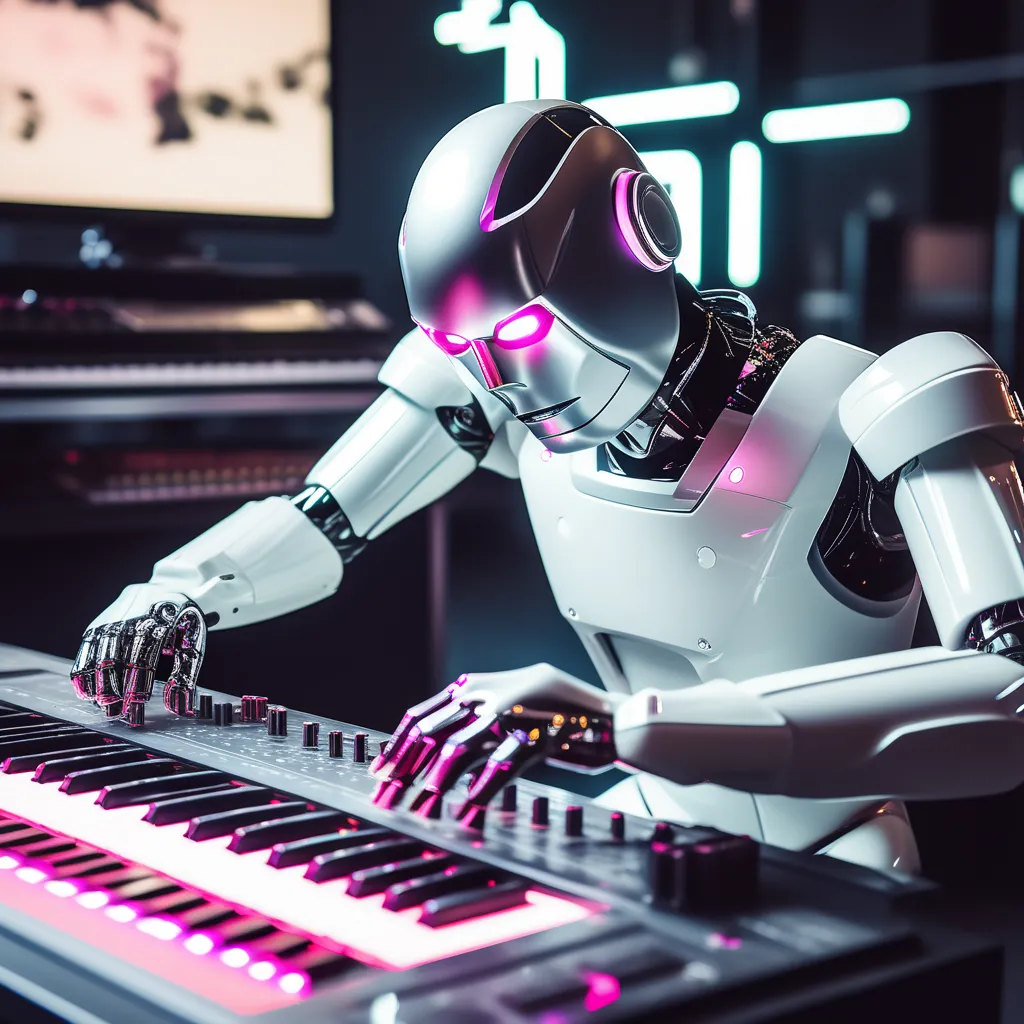The Influence of AI on Modern Music Production
Music has been an integral part of human culture for centuries, and over time, it has evolved hand in hand with technology. In recent years, one of the most transformative technological advancements in the music industry has been the integration of Artificial Intelligence (AI). In this article, we'll explore how AI is shaping the world of modern music production, and I'll share personal stories that shed light on its profound influence.

The Evolution of Music Production
1. The Analog Era
I still remember the days when music production primarily relied on analog equipment. Mixing consoles, tape machines, and countless hours in the studio were the norm. As a musician, I experienced firsthand the challenges and nuances of creating music in this traditional way.
2. The Digital Revolution
The transition to digital recording and production tools was a game-changer. It brought more accessibility and flexibility to musicians and producers. With a laptop and software, I could compose, record, and produce music from the comfort of my home. Little did I know that this was just the beginning of a seismic shift in music creation.
The Rise of AI in Music Production
1. AI-Generated Music
AI algorithms can now generate entire pieces of music autonomously. It's incredible to witness how AI can analyze vast datasets of music and create compositions in various styles. I recall stumbling upon an AI-generated track that seamlessly blended classical and electronic elements, leaving me in awe of the algorithm's creativity.
2. Enhancing Creativity
AI tools like generative adversarial networks (GANs) have the power to augment human creativity. They can propose musical ideas and help break through creative blocks. I met a fellow musician who used an AI-powered tool to suggest chord progressions that breathed new life into their compositions.
AI as a Collaborator
1. AI-Powered Instruments
In the world of electronic music, AI-powered instruments are becoming increasingly prevalent. I had the opportunity to try out a synthesizer that used AI to generate evolving soundscapes in real time. It felt like collaborating with an otherworldly musician, expanding my sonic palette.
2. Assisting Audio Engineers
Audio engineers often spend hours fine-tuning recordings to achieve the perfect mix. AI can now assist by automating repetitive tasks, like noise reduction and EQ adjustments. This automation allows engineers to focus on more creative aspects of their work.
The Challenges and Controversies
1. Authenticity vs. Automation
While AI brings incredible capabilities to music production, it also raises questions about authenticity. Can a piece of AI-generated music ever truly capture the human experience and emotion? I've engaged in discussions with fellow musicians who grapple with this dilemma.
2. Job Displacement
The advent of AI in music production has sparked concerns about job displacement. Will AI replace human musicians, composers, and producers? This concern hits close to home for me, as I've seen friends in the industry wrestle with the uncertainty of the future.
The Future of Music Production
AI's influence on music production is undeniable, and its role will continue to evolve. As I reflect on my musical journey, I'm excited to see how AI will shape the industry. While there are challenges and uncertainties, there's no denying that AI has expanded the creative possibilities in music.
In the end, the collaboration between humans and AI may become a defining feature of modern music production. Musicians and producers will need to adapt, embracing AI as a tool that enhances their creativity rather than replaces it. The future of music production promises to be a harmonious blend of artistry and artificial intelligence.<

No comments:
Post a Comment